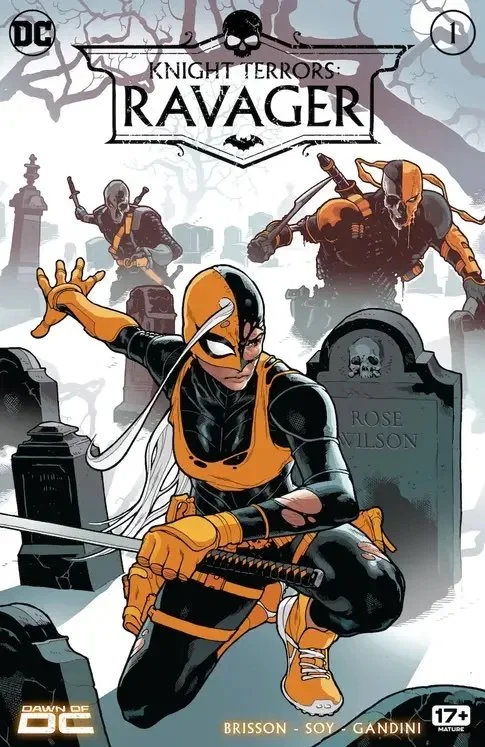Brusha’s plot structure moves things along swiftly.
All in Female Lead
Victory #2 // Review
Just over half of the issue is an interrogation in Purgatory.
Red Sonja #1 // Review
Grønbekk opens the series with a well-woven first issue.
Elvira in Monsterland #3 // Review
Avallone has more than a few genuinely funny moments here and there.
Panya: The Mummy’s Curse #1 // Review
Mignola and Roberson do a very clever job of establishing the story's place in history.
Scarlet Witch #6 // Review
The whole thing feels remarkably engaging.
Savage Squad 6 #1 // Review
Venditti and McKinney pound the story into the page with a clever poetry.
Harley Screws Up the DCU #6 // Review
The big climactic conclusion is seriously funny.
Knight Terrors: Shazam! #1 // Review
Waid’s narrative is subtly trippy on a number of different levels.
Bettie Page #2 // Review
Andolfo and Blengino move the action around with a deft hand.
Stoneheart #5 // Review
As a writer, Kubert knows her own strengths as an artist.
Knight Terrors: Zatanna #1 // Review
A Culver-written Zatanna series would be great fun.
Antarctica #1 // Review
Things seem to shift quite a bit in the first half of the first issue.
Knight Terrors: Ravager #1 // Review
Ravager feels like one of the more sophisticated treatments of the nightmare realm.
Knight Terrors: Poison Ivy #1. // Review
Ilhan and Morales openly embrace the garish nightmare.
Draculina: Blood Simple #4 // Review
A sharply clever job of articulating bewildering complexity.
Silk #2 // Review
Kim works with standard sci-fi tropes.
She-Hulk #14 // Review
Rowell falls into uncomfortable romantic comedy territory.
Monstress #45 // Review
Liu’s work is deep and resonant.
Untold Tales of I Hate Fairyland #1 // Review
In theory, it should be a lot of fun.




















